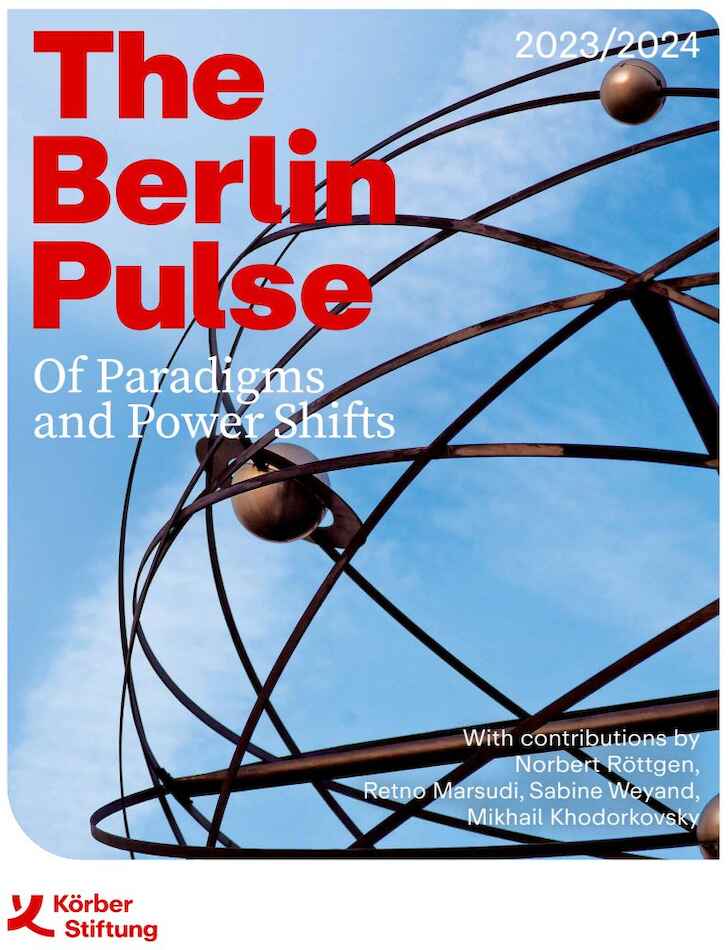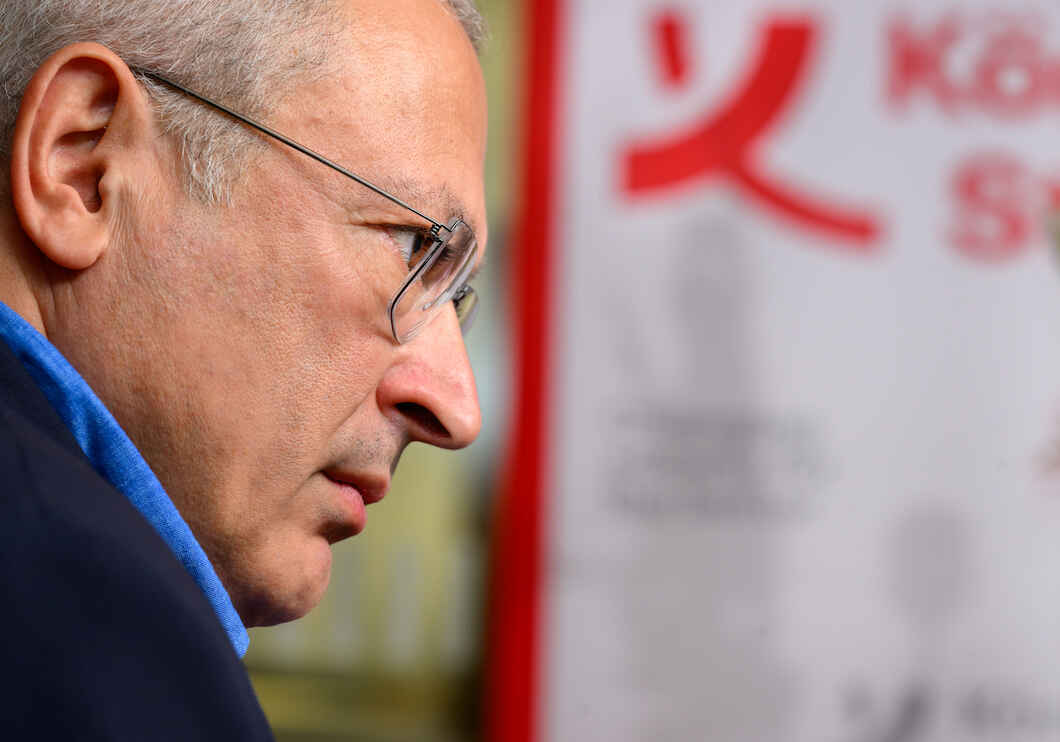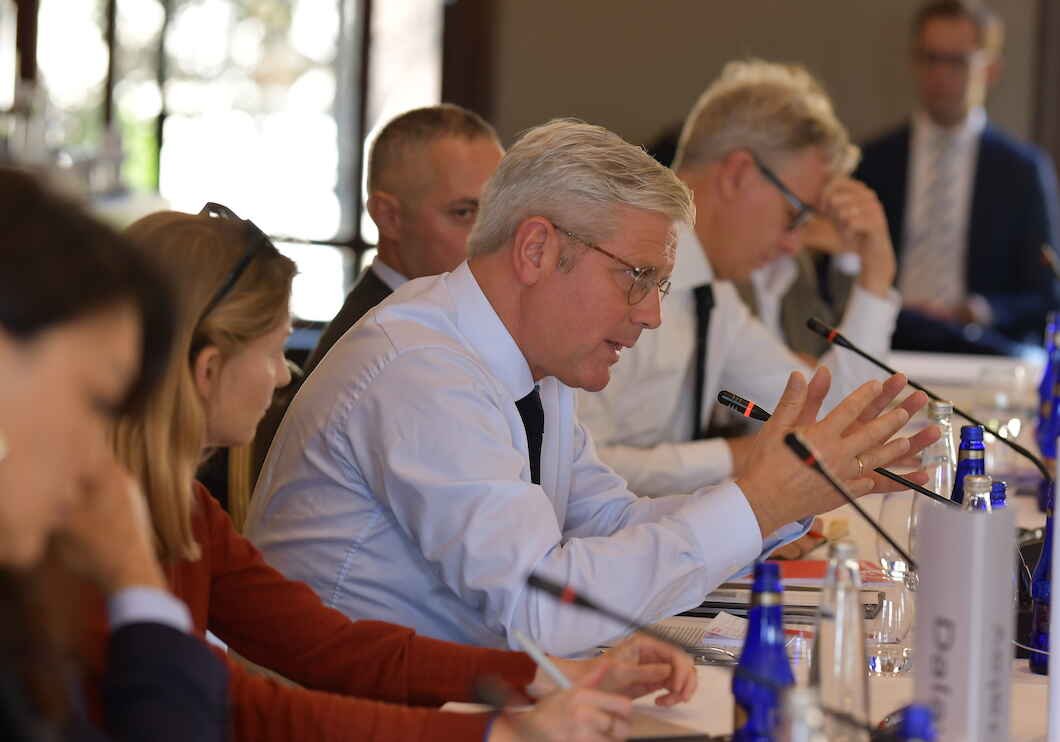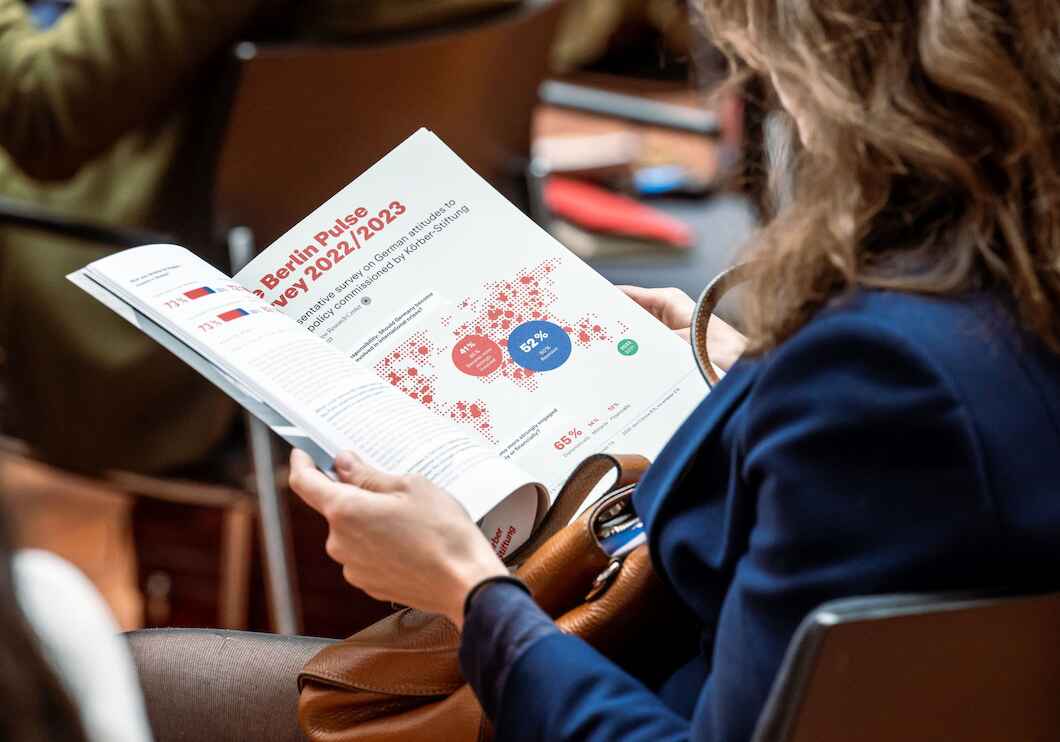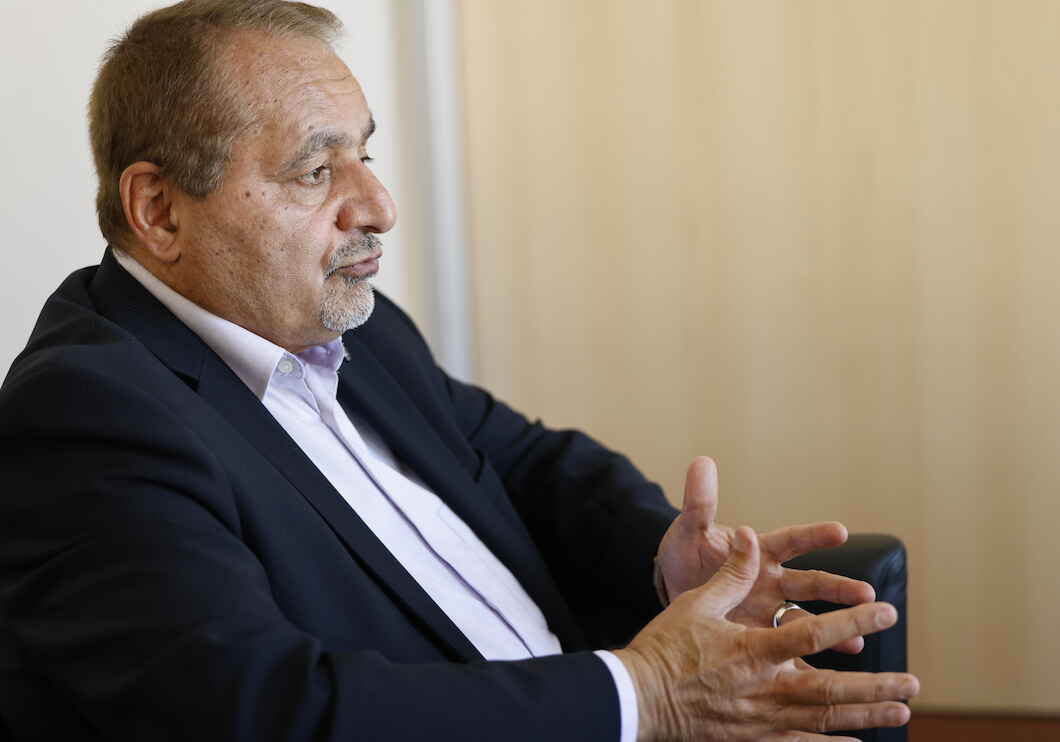
Photo: Classic Collection / Shotshop GmbH / Alamy Stock Foto
The Berlin Pulse 2023/24
Of Power shifts and Paradigms
What do Germans und US citizens think about the most pressing foreign policy issues? Here are the highlights of this year’s public opinion survey, addressing Germany’s international role, biggest challenges and most important partners.
Download the publication with all survey results, essays and interviews here:
“Not only because of its historical responsibility, Germany cannot ignore the multiple crises, nor should it let others solve them alone. Now is the moment to work on an international standing that makes Germany a credible advocate ad partner for multilateral solutions – backed by financial resources and domestic support.”
Julia Ganter
Editor, The Berlin Pulse, Körber-Stiftung
A majority (57 per cent) of Germans believe that Germany’s international influence has declined over the past two years, despite Chancellor Olaf Scholz’s proclaimed Zeitenwende. As a result, only 38 per cent of respondents would like to see Germany become more engaged in international crises. This is the lowest figure since the start of the survey in 2016. 76 per cent believe that this involvement should preferably be of a diplomatic nature, compared to 65 per cent last year. 71 per cent of respondents are against Germany taking a leading military role in Europe.
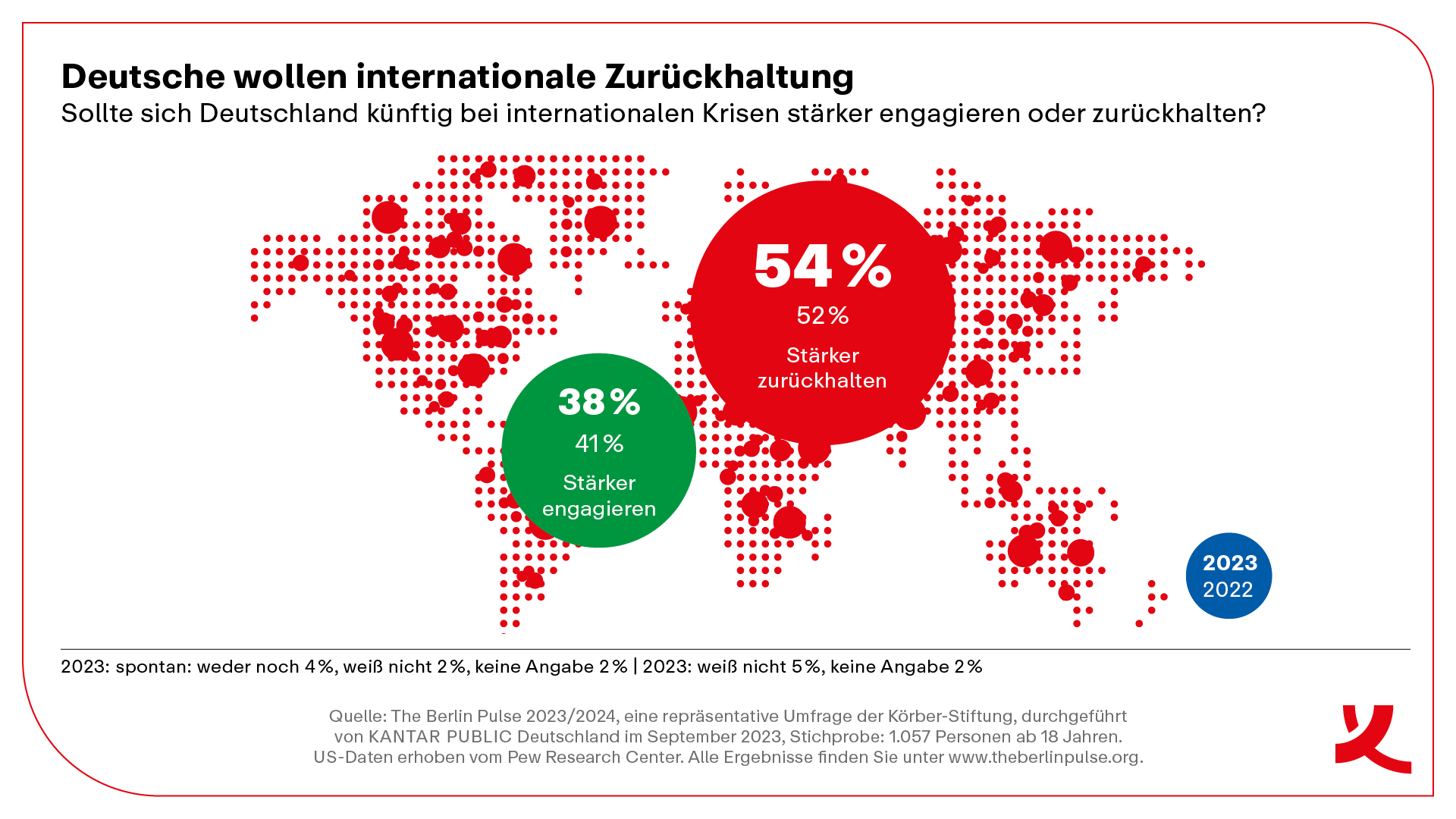
At the same time, 72 per cent of respondents agree with the German government’s goal of spending two per cent of gross domestic product on defence each year. 26 per cent of respondents even think this is too low.
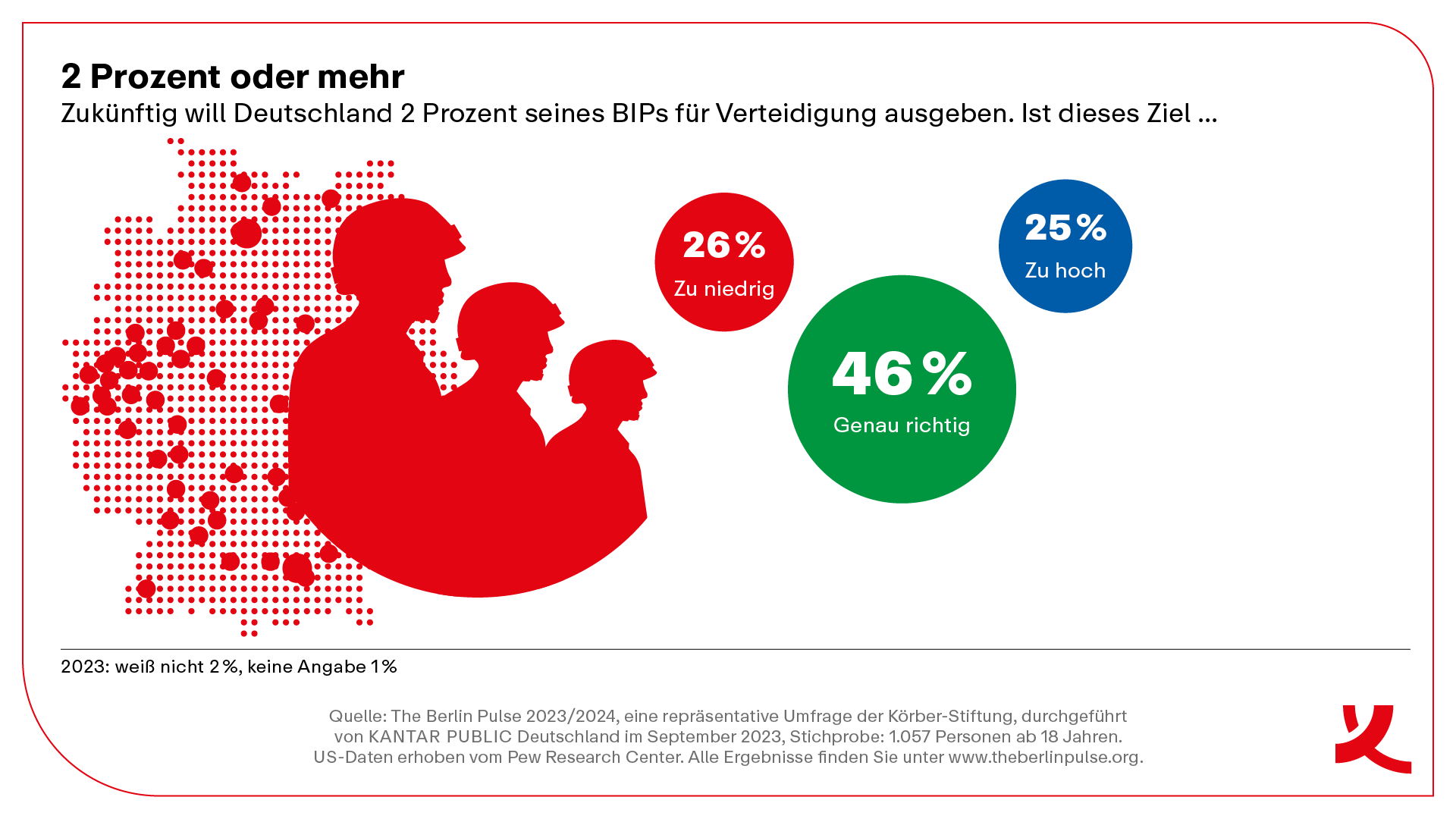
“This is the seventh edition of our annual collaboration with Körber-Stiftung, polling the American and German public on the state of relations between the United States and Germany,” said Jacob Poushter, Associate Director of Research. “We asked people in both countries how they see their nation’s relationship with China, given the country’s rise and role in world affairs, and find that majorities in both countries view China’s growing influence as a bad thing. However, only 13% of Germans see China as a major military threat to their country, compared with 70% of Americans who say the same.”
Jacob Poushter
Associate Director, Global Attitudes Research, Pew Research Center
Germans are less unanimous than in previous years when it comes to identifying international challenges. Although 41 per cent of respondents see the war in Ukraine as the biggest challenge, this is followed by migration (15 per cent), climate change (12 per cent) and China (11 per cent), as well as Russia, energy and the economy (8 per cent each).
66 per cent of respondents support continued military support for Ukraine. Of these, 54 per cent say that military aid from Germany should be used to regain the territories occupied by Russia. 41 per cent believe that German support should primarily be used to prevent Russia from advancing further.
More and more Germans (62 per cent) and Americans (71 per cent) view China’s growing influence negatively. Only 6 per cent see it positively. 6 out of 10 Germans are in favour of greater economic independence from China, even if this could mean economic losses and the loss of jobs. 49 per cent of respondents see China as an economic competitor, 35 per cent as a rival and only 13 per cent as a partner of Germany.
The skepticism towards Beijing is reflected more strongly than in previous years in a concrete perception of threat: 55 per cent see China as a military threat to Germany’s security.
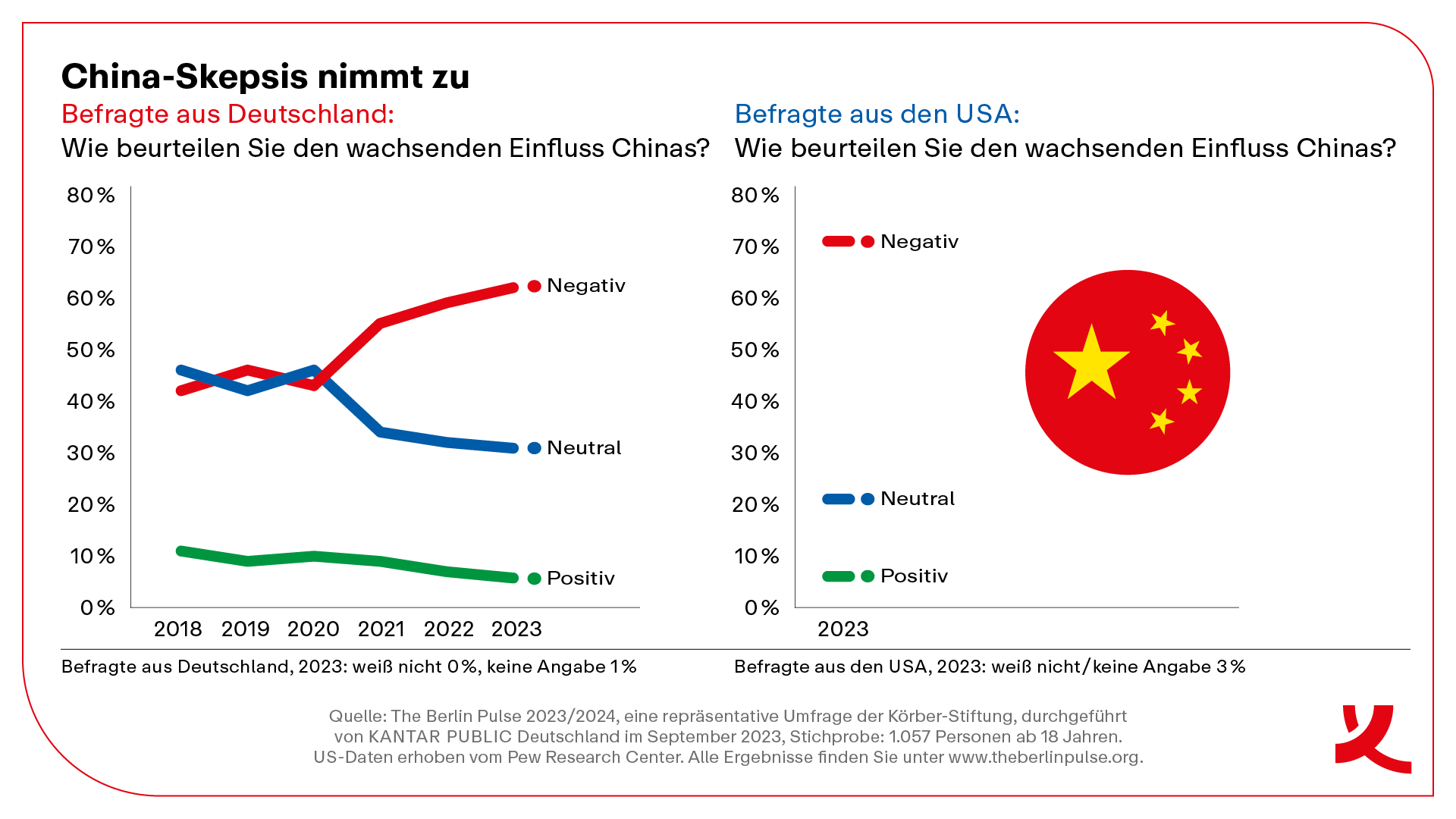
Compared to the previous year, more respondents (76 per cent) see Russia as a military threat to Germany. A majority of Germans also agree that the Russian government under Vladimir Putin cannot be trusted (86 per cent). Nevertheless, a withdrawal by Russia from Ukraine without preconditions (87 per cent), a serious interest by Russia in peace negotiations (84 per cent) or a loss of power by Putin (79 per cent) could restore trust.
The influence of emerging countries such as Brazil, India and South Africa is viewed positively by a majority of 51 per cent of Germans. By contrast, US respondents are more sceptical, with only 39 per cent approving of the influence of these countries. In addition, a majority of Germans (66 per cent) express understanding for emerging and developing countries that do not join the sanctions against Russia.
In the year leading up to the US elections, the US has regained its status as Germany’s most important partner. 43 per cent of Germans consider the US to be Germany’s most important partner, seven percentage points more than last year. 77 per cent of Germans rate the relationship between Germany and the US as good. The American respondents’ assessment remains very positive (85%). However, there are differences in policy areas: When it comes to climate protection, only 29 per cent see the US as a partner, while 69 per cent of Germans see the US as an important partner when it comes to dealing with the war in Ukraine.
This positive assessment of transatlantic relations could be reversed if Donald Trump is re-elected in 2024.82% of respondents believe this would have a negative impact on transatlantic relations.
A large majority of respondents (82 per cent) believe that democracies are better able to deal with global challenges such as pandemics, climate change and military conflicts in the long term. At the same time, Germans are divided on the question of further EU enlargement. 51 per cent are against, 45 per cent in favour.
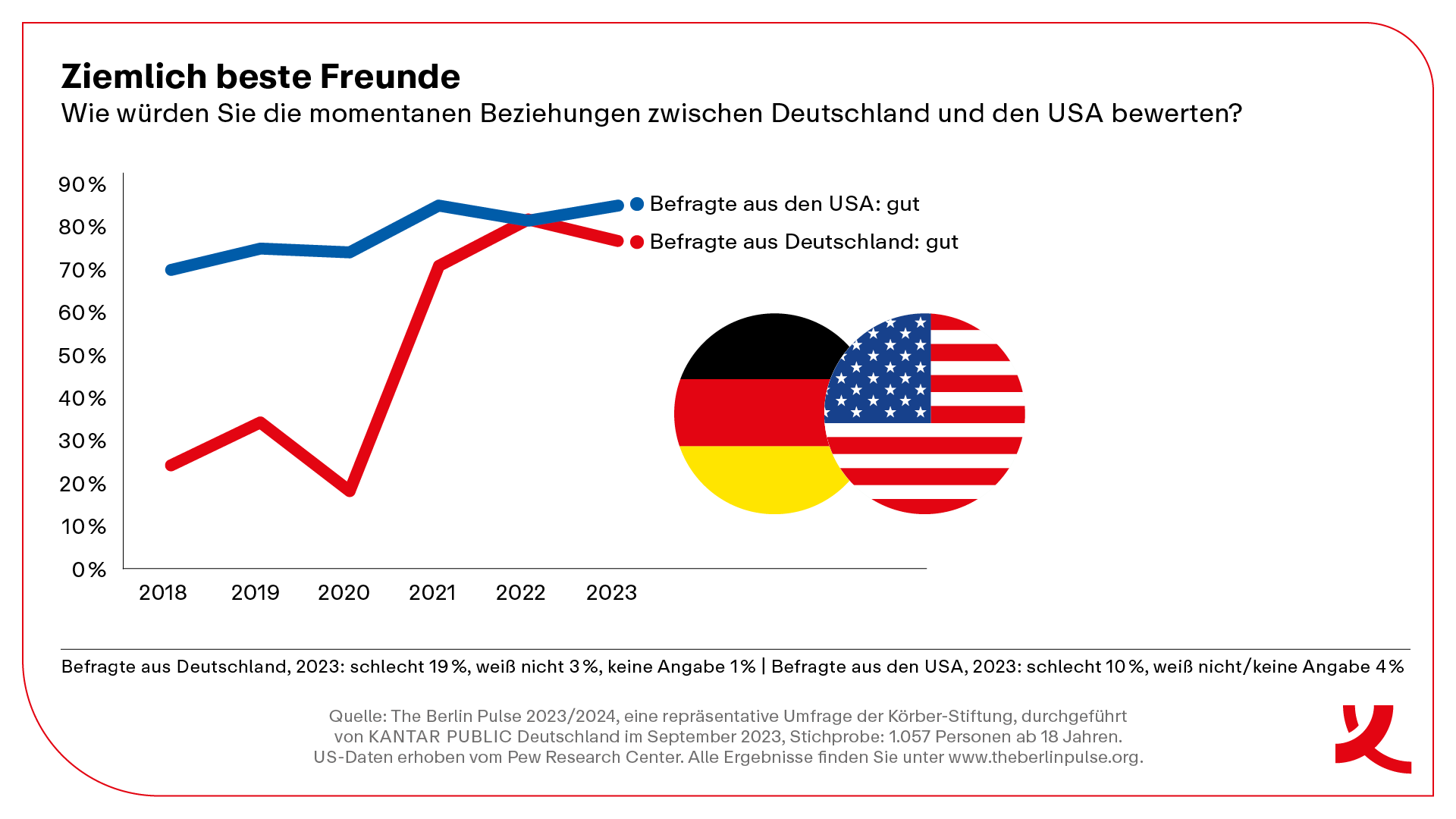
A large majority of respondents (82 per cent) believe that democracies are better able to overcome global challenges such as pandemics, climate change and military conflicts in the long term. At the same time, Germans are divided on the issue of further eastward expansion of the EU. 51 per cent are against, 45 per cent in favour.
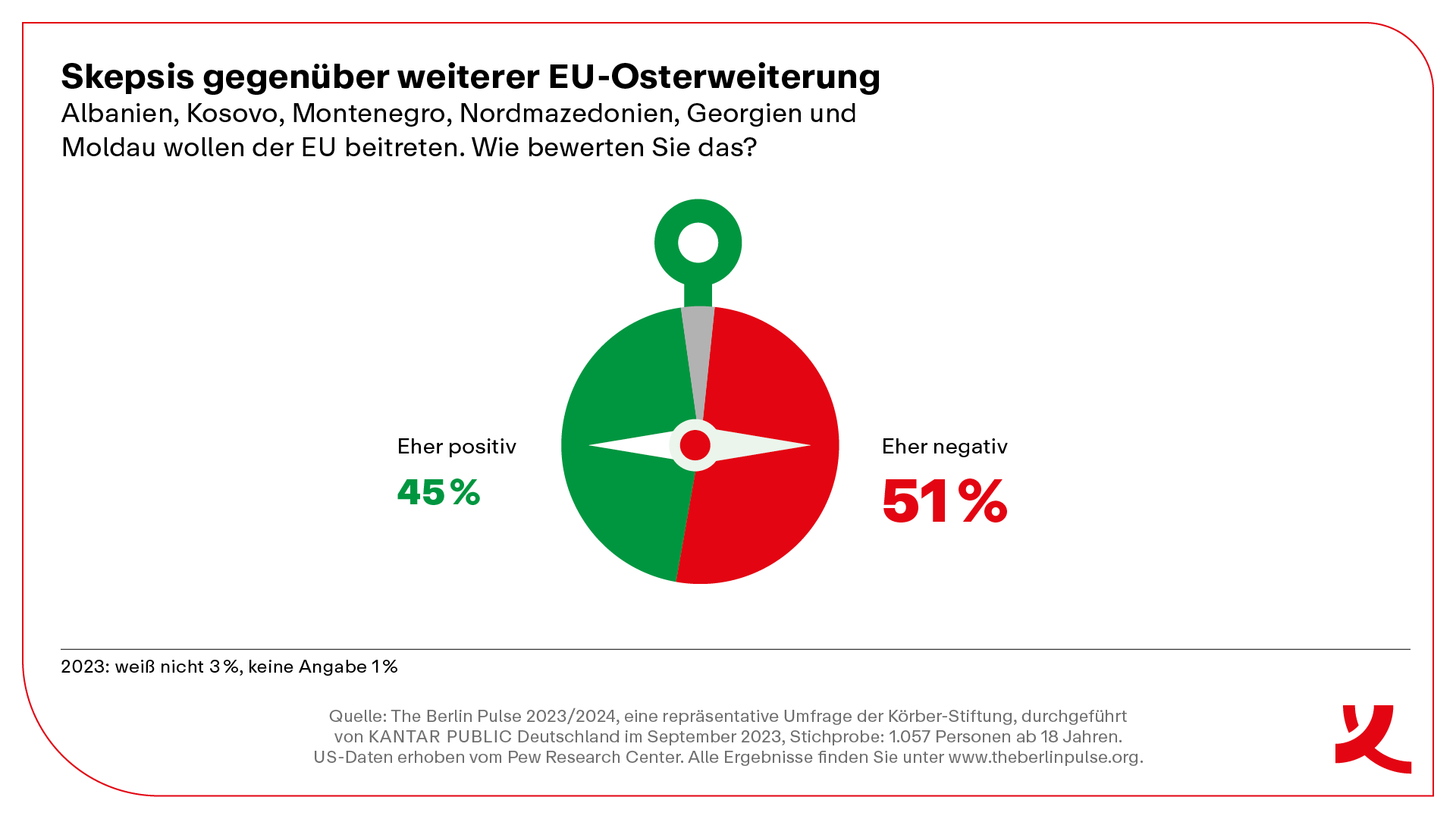
The Berlin Pulse is our annual foreign policy report and survey, which is published on the occasion of the Berlin Foreign Policy Forum.
Since 2014, we have regularly asked Germans about their attitudes to German foreign policy. The representative survey was conducted by Kantar Public in August 2022. On our behalf, 1,088 citizens aged 18 and above were surveyed. The survey in the USA was conducted by Ipsos for the Pew Research Center in July and August 2022.
